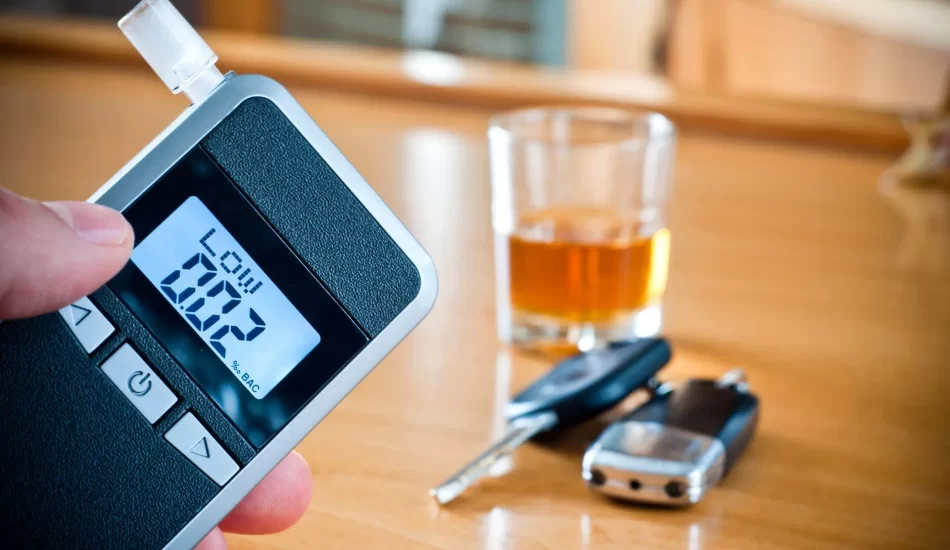Beyond Blood Alcohol Content: Exploring the Science of DUI Detection

Driving under the influence (DUI) is a serious offense that poses significant risks to public safety. Law enforcement agencies employ various methods to detect impaired drivers, with blood alcohol content (BAC) being a common metric used to assess impairment. However, advancements in technology and scientific research have expanded the scope of DUI detection beyond BAC. In this article, we delve into the science of DUI detection, exploring emerging technologies, field sobriety tests, and the role of criminal defense attorneys in ensuring a fair legal process.
Blood Alcohol Content (BAC): The Traditional Measure of Impairment
Blood Alcohol Content (BAC) is the most commonly used metric to determine the level of alcohol in a person’s system. It is measured by analyzing a blood, breath, or urine sample. BAC levels are influenced by various factors, including the amount and rate of alcohol consumption, body weight, metabolism, and the presence of food in the stomach. While BAC is a useful indicator, it has limitations, and additional methods are necessary to assess impairment accurately.
Field Sobriety Tests (FSTs): Assessing Physical and Cognitive Impairment
Field Sobriety Tests (FSTs) are physical and cognitive tests conducted by law enforcement officers at the scene to determine impairment. Common FSTs include the horizontal gaze nystagmus test, walk-and-turn test, and one-leg stand test. These tests evaluate a person’s balance, coordination, and cognitive abilities. While FSTs provide valuable insights, they are subjective and can be influenced by external factors. Therefore, their results must be interpreted carefully, and the expertise of criminal defense attorneys is crucial in challenging their validity.
Breathalyzer Technology: Assessing Breath Alcohol Concentration
Breathalyzer technology measures breath alcohol concentration (BrAC) to estimate BAC indirectly. It works on the principle of infrared spectroscopy or electrochemical fuel cell analysis. Breathalyzers provide a convenient and non-invasive method of estimating alcohol levels, but they are subject to calibration issues and potential inaccuracies. Criminal defense attorneys play a significant role in scrutinizing the reliability and accuracy of breathalyzer results, ensuring that individuals are not wrongly accused based on faulty readings.
Emerging Technologies: Advancements in DUI Detection
Advancements in technology have paved the way for innovative DUI detection methods beyond BAC. For instance, transdermal alcohol monitoring devices can measure alcohol levels through the skin, offering continuous monitoring and accurate data. Additionally, researchers are exploring the use of advanced sensors, wearable devices, and smartphone applications to detect impairment in real-time. These emerging technologies show promise in enhancing DUI detection accuracy, but their implementation requires careful evaluation and consideration of legal implications.
Expert Witnesses and the Role of Criminal Defense Attorneys
When individuals face DUI charges, the expertise of criminal defense attorneys becomes crucial in ensuring a fair legal process. Defense attorneys work with expert witnesses, including forensic toxicologists and scientists, to challenge the reliability of DUI detection methods and evidence. They scrutinize the procedures followed during testing, evaluate the maintenance records of breathalyzer devices, and challenge the validity of field sobriety test results. By presenting strong legal arguments and evidence, criminal defense attorneys protect the rights of the accused and advocate for a fair and just outcome.
Balancing Science and Legal Considerations
The science of DUI detection continues to evolve, presenting both opportunities and challenges in the legal landscape. Balancing scientific advancements with legal considerations is essential to maintain the integrity of the legal system and protect individuals’ rights. It is crucial for legislators, law enforcement agencies, and legal professionals to stay informed about the latest research and technological developments in DUI detection, ensuring that the methods used are reliable, admissible in court, and aligned with constitutional rights. While scientific advancements enhance the accuracy of DUI detection, it is imperative to strike a balance between utilizing these tools and safeguarding individuals from potential misuse or violation of their rights.
Education and Public Awareness: Mitigating Impaired Driving
Beyond the realm of scientific advancements and legal proceedings, education and public awareness play a crucial role in mitigating impaired driving. Effective public campaigns can raise awareness about the dangers of driving under the influence, promote responsible alcohol consumption, and encourage individuals to make alternative transportation arrangements when impaired. By fostering a culture of responsibility and accountability, we can reduce the prevalence of DUI incidents and create safer roadways.
Collaboration and Policy Development: A Multifaceted Approach
Addressing the science of DUI detection requires a multifaceted approach that involves collaboration among various stakeholders. Legislators, law enforcement agencies, scientific researchers, legal professionals, and advocacy groups must work together to develop comprehensive policies and regulations. These policies should consider the evolving scientific landscape, balance the need for accurate detection with individual rights, and prioritize public safety. If you’re facing a second DUI charge, a second DUI lawyer can guide you through the legal intricacies of DUI detection methods, challenge evidence, and ensure your rights are protected during the legal process.
Conclusion
Beyond blood alcohol content (BAC), the science of DUI detection has expanded to encompass a range of methodologies and technologies. While BAC remains a valuable indicator of impairment, field sobriety tests, breathalyzer technology, and emerging advancements provide additional tools for assessing impairment accurately. However, it is essential to recognize the role of criminal defense attorneys in ensuring a fair legal process, challenging the reliability of detection methods, and protecting the rights of individuals facing DUI charges.
As science and technology continue to evolve, it is crucial to maintain a delicate balance between scientific advancements and legal considerations. Public awareness campaigns, education, and collaboration among stakeholders are vital in addressing the issue of impaired driving. By integrating scientific knowledge, upholding constitutional rights, and fostering a culture of responsibility, we can strive towards a future with safer roads and reduced instances of DUI. Attorney Jarrett Maillet can help you through the world of DUI detection: exploring the science.
Jarrett Maillet J.D., P.C.
210 E 31st St
Savannah, GA 31401
912-713-3426


